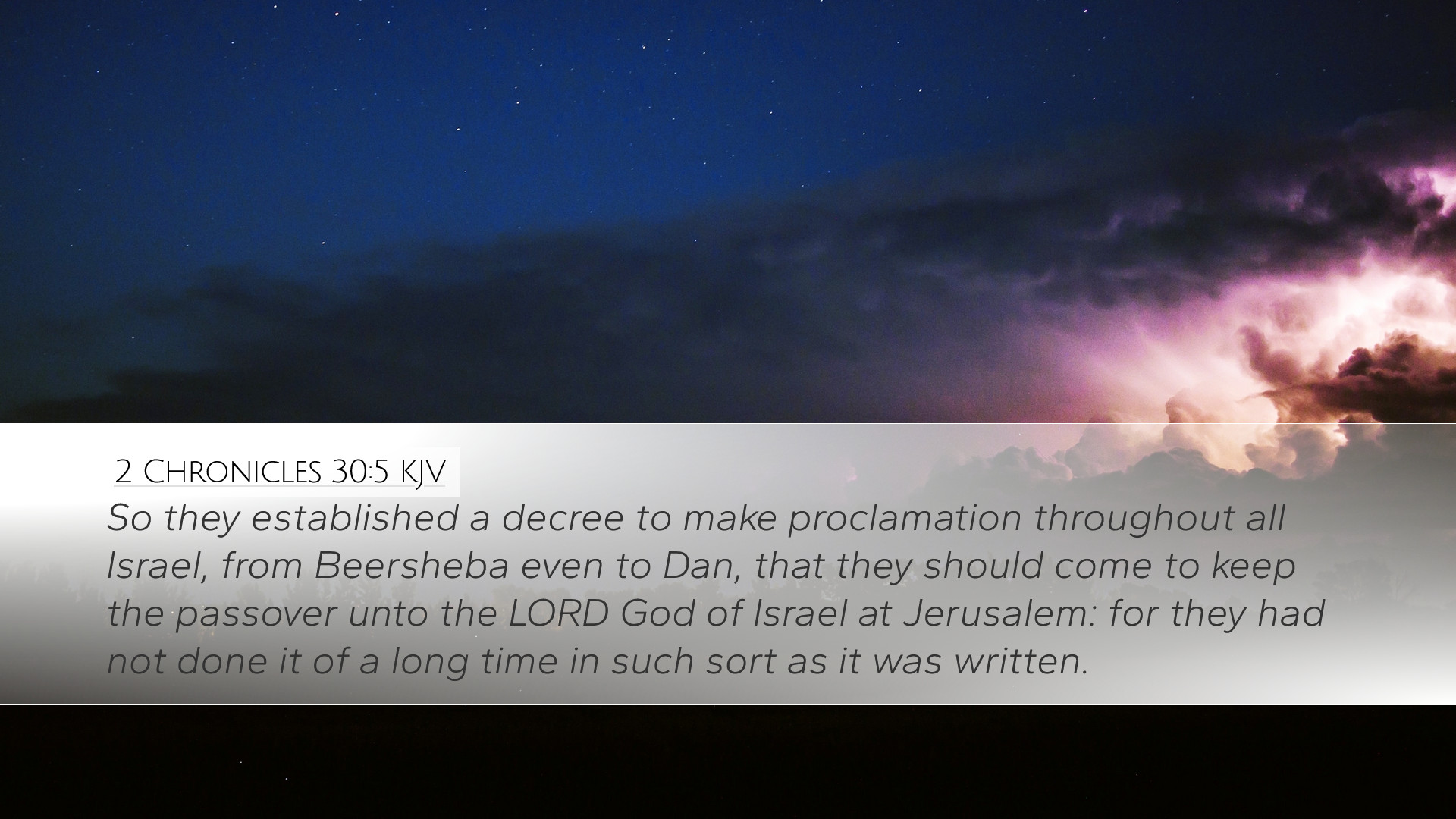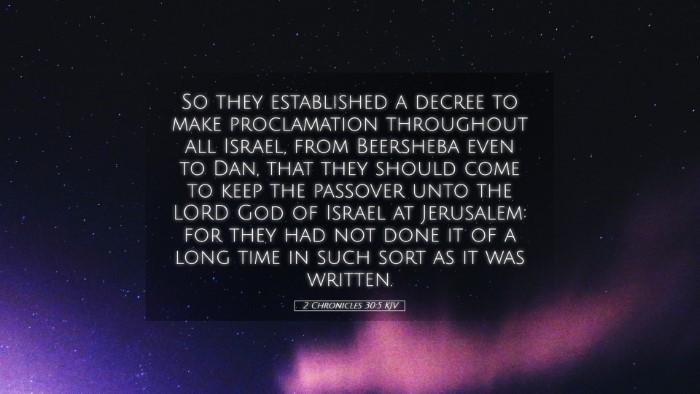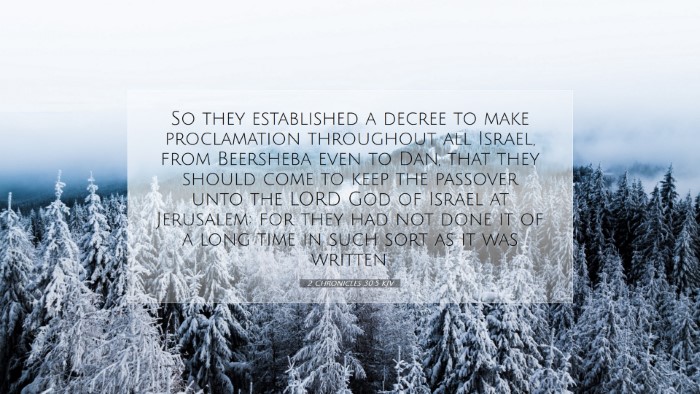Commentary on 2 Chronicles 30:5
Verse: 2 Chronicles 30:5 - "So they decreed to make a proclamation throughout all Israel, from Beersheba to Dan, that they should come to keep the passover unto the LORD God of Israel at Jerusalem: for they had not done it of a long time in such sort as it was written."
Contextual Background
The passage in 2 Chronicles 30:5 occurs in the context of King Hezekiah’s reign, a time marked by religious reforms. Hezekiah seeks to reestablish true worship among the people of Israel after years of idolatry and neglect toward the temple of God. This verse highlights the significant effort made to gather the Israelites for a communal celebration of the Passover, a central feast in Jewish life commemorating God's deliverance of Israel from Egypt.
The Call to Worship
Public Proclamation: The decree to make a proclamation signifies a deliberate initiative by Hezekiah to engage the nation in worship. As noted by Matthew Henry, “The king, as a good shepherd, seeks to gather his scattered sheep back to the fold.” The emphasis on a nationwide call—from Beersheba in the south to Dan in the north—illustrates the inclusive nature of this restoration. It is a unifying moment that reflects the heart of God’s desire for His people: to come together in worship.
Inclusivity of the Call
This proclamation seeks to include all Israelites regardless of their location or spiritual status. Albert Barnes points out the significance that “this call was not limited to the faithful alone but sought to reach those who may have wandered from their heritage.” This suggests a gracious invitation extended to all, highlighting God’s readiness to forgive and restore those who return in repentance.
The Importance of the Passover
Remembering the Covenant: The observance of the Passover serves as a central reminder of God's faithfulness to His covenant. Adam Clarke emphasizes, “The Passover was not merely a ritual; it was a declaration of the historical and spiritual identity of the Israelite people.” By calling the people to gather for this feast, Hezekiah aimed to rekindle their understanding of God’s redemptive work.
Historical Context
The text indicates that the Passover had not been observed "of a long time in such sort as it was written." Matthew Henry elaborates that “this neglect reflected both a spiritual decline and a departure from divine commandments.” It highlights the importance of adhering to God’s instructions as laid out in the Law, reminding contemporary readers of the vital role of scripture in guiding worship practices.
Spiritual Significance
Restoration and Renewal: The gathering for the Passover symbolizes a restoration of covenant relationship with God. Albert Barnes remarks, “A sincere return to the Lord always precedes a revival.” The act of remembering the Passover is an act of reaffirmation of faith, a commitment to live in accordance with God's commands rather than the ways of the world.
Unity in Worship
The appeal to worship at Jerusalem accentuates the importance of the central place of worship which God designated. Adam Clarke writes, “Jerusalem, as the chosen city, represents the place where God’s presence dwelled, and thus worship should be offered.” This gathering illustrates the unity that comes from sharing in sacred practices that bind the community together in faith.
Application for Today
Lessons for the Church: Hezekiah’s reforms and the call for communal worship offer significant lessons for contemporary believers. The church today is reminded to prioritize collective worship, embrace inclusivity, and recognize the necessity of renewal in faith practices. Matthew Henry aptly states that “Church leaders must motivate their congregants towards a deeper commitment to worship God as He desires, not merely as they see fit.”
Encouragement for a Revival
The collective return to the observance of the Passover serves as an encouragement for all believers to seek spiritual revival and restoration in their communities. Albert Barnes suggests, “Revival begins when God’s people recognize their spiritual state and actively seek to align with His will.”
Conclusion
In summary, 2 Chronicles 30:5 encapsulates a pivotal moment in the history of Israel that emphasizes the significance of communal worship, the observance of sacred traditions, and the urgent call for restoration among God’s people. It challenges pastors, students, theologians, and Bible scholars to reflect on their communal worship practices and to inspire a longing for genuine encounters with God that underline His enduring faithfulness.


